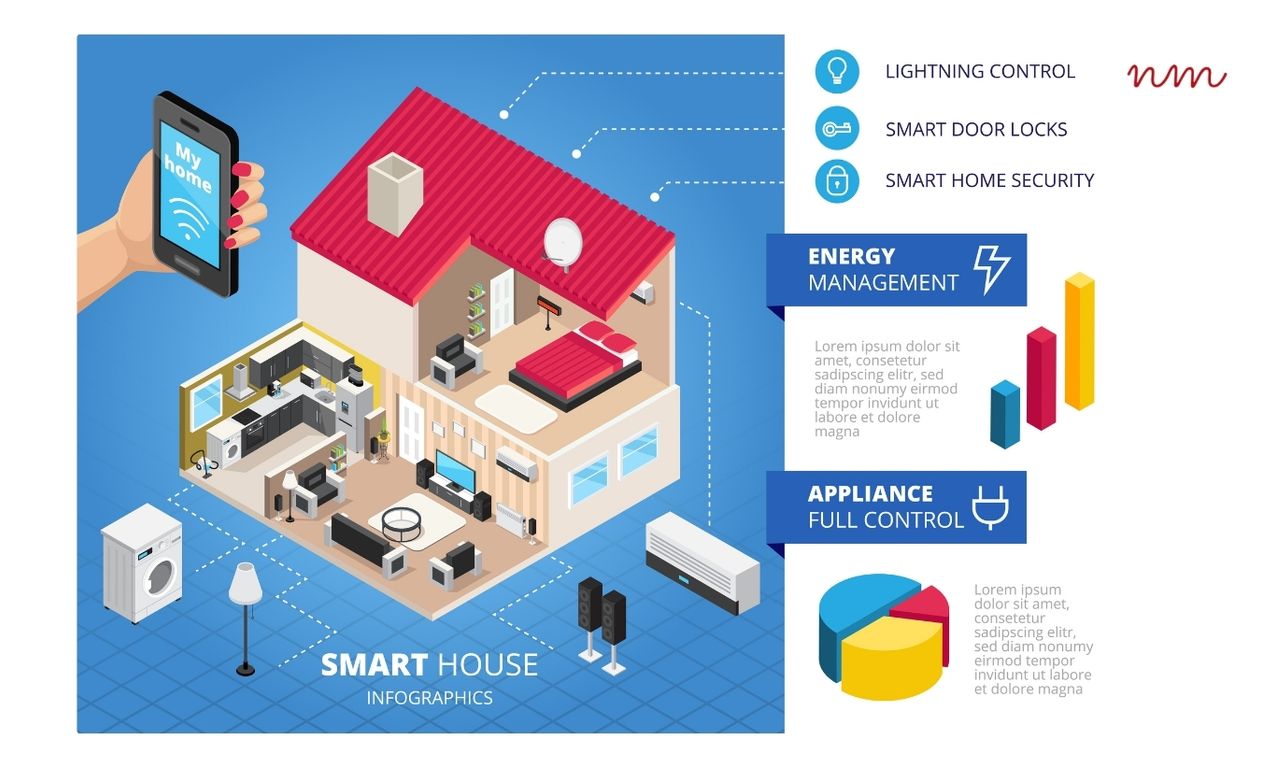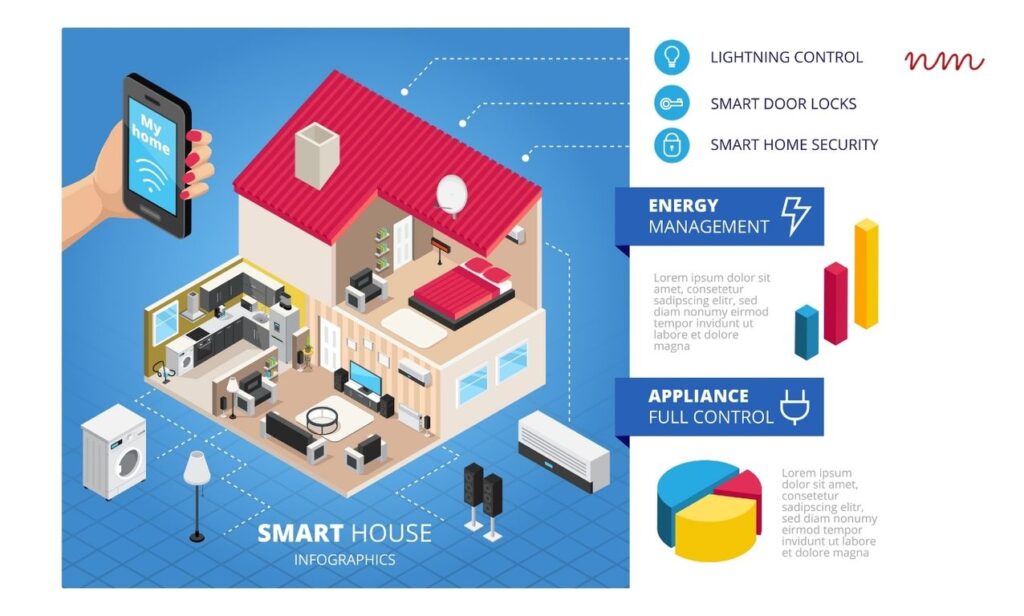In today’s world, where technology is advancing at an unprecedented pace, smart homes are becoming increasingly popular. These homes are equipped with devices and systems that can be controlled remotely using a smartphone or other connected devices. One of the key benefits of smart homes is their ability to save energy.
In this blog post, I will share some strategies that you can use to make your smart home more energy-efficient. I will also discuss some of the challenges that you may face when implementing these strategies. I have been writing about smart homes for over 10 years, and I have seen firsthand how these technologies can help homeowners save money on their energy bills. I believe that smart homes are the future of homeownership, and I am excited to share my knowledge with you.
I have always been passionate about energy efficiency, and I believe that smart homes have the potential to revolutionize the way we use energy in our homes. I am excited to share my knowledge and experience with you, and I hope that this blog post will help you make your smart home more energy-efficient.
Smart Home: A Path to Energy Conservation
In an era characterized by escalating energy consumption and environmental concerns, the concept of a smart home has emerged as a beacon of hope for sustainable living. A smart home is a technologically advanced abode that integrates various devices and systems to optimize energy efficiency, comfort, and convenience. This article delves into the transformative potential of smart homes in reducing energy consumption and fostering a greener future.
1. Automated Energy Management:
A cornerstone of smart home technology is the ability to automate energy management. This is achieved through the use of smart thermostats, lighting systems, and appliances that can be programmed to adjust their operation based on occupancy, time of day, and weather conditions. By eliminating energy wastage during unoccupied periods or optimizing heating and cooling schedules, smart homes can significantly reduce energy consumption.
2. Real-Time Energy Monitoring:
Smart homes provide homeowners with real-time insights into their energy consumption patterns. This is made possible through the integration of energy monitoring systems that track energy usage at the appliance level. Armed with this information, homeowners can identify areas of excessive energy consumption and take informed steps to reduce their energy footprint. This granular level of monitoring empowers homeowners to make informed choices and adopt energy-saving behaviors.
3. Integration of Renewable Energy Sources:
Smart homes are designed to seamlessly integrate renewable energy sources such as solar panels and wind turbines. These systems generate clean, sustainable energy that can be used to power the home, reducing reliance on traditional energy sources. Additionally, smart homes can store excess energy generated during peak production periods in batteries for use when renewable energy is unavailable. This integration of renewable energy sources not only reduces energy costs but also contributes to a cleaner and more sustainable energy grid.
4. Energy-Efficient Appliances and Devices:
Smart homes are equipped with energy-efficient appliances and devices that minimize energy consumption without compromising performance. These appliances, ranging from refrigerators to washing machines, incorporate advanced technologies that optimize energy usage, reduce water consumption, and minimize standby power consumption. By adopting energy-efficient appliances, smart homes contribute to overall energy savings and reduce the environmental impact associated with energy production.
5. Remote Control and Connectivity:
Smart homes offer the convenience of remote control and connectivity, allowing homeowners to manage their energy usage from anywhere. Through smartphone apps or web interfaces, homeowners can adjust thermostats, turn off lights, and monitor energy consumption in real-time. This connectivity empowers homeowners to make informed decisions about their energy usage, even when they are away from home. Additionally, smart homes can be integrated with smart grids, enabling two-way communication between the home and the utility provider, optimizing energy distribution and reducing energy waste.
In conclusion, smart homes represent a transformative approach to energy conservation, offering a multitude of benefits that contribute to a more sustainable future. By integrating advanced technologies, smart homes empower homeowners to optimize energy usage, reduce their carbon footprint, and enjoy a more comfortable and energy-efficient living environment.

FAQs about smart home save energy
1. How can smart home technology help me save energy?
Smart home technology can help you save energy in a number of ways. For example, you can use smart thermostats to control your home’s heating and cooling system more efficiently. You can also use smart lights to turn off lights when you leave a room. Additionally, you can use smart appliances to run only when necessary.
2. What are some of the most popular smart home devices for saving energy?
Some of the most popular smart home devices for saving energy include smart thermostats, smart lights, smart plugs, and smart appliances. Smart thermostats can help you save energy by learning your heating and cooling preferences and adjusting the temperature accordingly. Smart lights can help you save energy by turning off lights when you leave a room. Smart plugs can help you save energy by turning off appliances when you’re not using them. And smart appliances can help you save energy by running only when necessary.
3. How much money can I save by using smart home technology?
The amount of money you can save by using smart home technology depends on a number of factors, including the size of your home, the types of smart home devices you use, and your energy usage habits. However, studies have shown that smart home technology can help you save up to 30% on your energy bills.
4. Is smart home technology difficult to install and use?
Smart home technology is becoming increasingly easy to install and use. Many smart home devices can be installed in minutes, and they can be controlled using a smartphone app or voice assistant. However, some smart home devices may require professional installation.
5. What are some of the security concerns associated with smart home technology?
There are some security concerns associated with smart home technology. For example, hackers could potentially gain access to your smart home devices and control them remotely. Additionally, smart home devices could be used to collect data about your home and your activities. However, there are a number of steps you can take to protect your smart home from security threats, such as using strong passwords and keeping your smart home devices up to date.
Recent Post:



